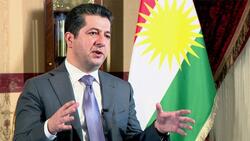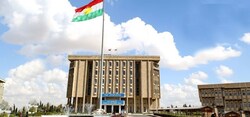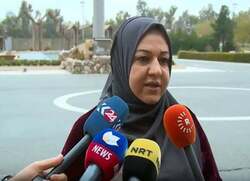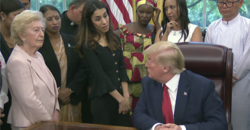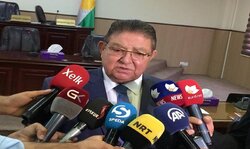Kurdish anger.. They united against us, and this is our response
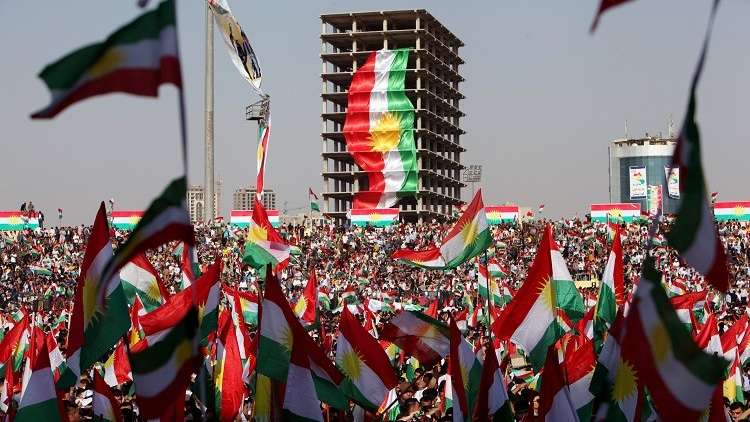
Shafaq News / Official and popular discontent prevailed on the Kurdish street on Thursday, following the Iraqi parliament's vote on a 12 trillion dinar financing law; without including the agreement between Baghdad and Erbil regarding the salaries of Kurdistan’s employees.. According to speakers, the issue of these employees has turned into a "political issue".
The Iraqi Parliament passed a 12 trillion dinar financing bill on Thursday, November 12th, 2020, without including the agreement between Baghdad and Erbil on the salaries of Kurdistan's employees.. The agreement was not included due to Shiite political forces’ strong opposition to Kurdish forces' demands.
"Stab in the back of Kurdistan’s people”
Kurdish leader, Masoud Barzani, called on Kurdish representatives in Baghdad, Kurdistan’s parliament, and his government to take a joint stand against the borrowing law that was passed independently of the Kurdish vote; in a move, Barzani described as “a stab in the back of Kurdistan’s people”.
"Unfortunately, once again, the Shiite and Sunni political parties betrayed the Kurdish people, and used the budget as a card to put pressure on Kurdistan", Masoud Barzani stated.
Although agreements have been signed between Erbil and Baghdad, they have not been implemented, "We see the law passed by the House of Representatives -without taking into account the foundations of partnership and agreements as a political topic, to put pressure on Kurdistan and punish its people; such an act is contrary to the foundations of partnership, consensus, and balance between the Iraqi components and a kind of narrowing and fighting”, Barzani said.
"It has become clear that the parliamentary parties have already decided to oppose Kurdistan. They always deal this way with the constitution, the conventions, rights, and demands of the Kurdish people”, Barzani added.
Important meeting in Kurdistan to take a stand towards "The Kurdish rights"
For its part, Kurdistan’s Presidency expressed concern about the Iraqi parliament’s passing of the law to finance the fiscal deficit without taking the principle of partnership; calling on the three presidencies of Kurdistan, the concerned authorities, and representatives of the Kurds in the federal government -and the House of Representatives, to meet and "unify positions”.
In a statement regarding the law on financing the fiscal deficit, Kurdistan’s presidency said that it took place without adopting the principles of partnership, consensus, and balance.. Also without paying attention to the observations and proposals of the Kurdish representatives. The presidency also called on all Kurdish blocs and representatives to take a unified stand to defend the rights and entitlements of Kurdistan’s people; and called on the three presidencies of Kurdistan, the concerned authorities, and Kurdistan’s representatives in the Federal Government and the House of Representatives to meet for this purpose, and to unify the positions of the concerned parties in Kurdistan on this issue.
A new round of conflict.. And the victim is the employees’ livelihood
Jamal Kocher, a Kurdish MP in the Iraqi parliament's finance committee, said to Shafaq News agency, "this is the beginning of a new difficult phase for the Kurdish component. More than 682,000 people’s livelihood has turned into a political issue”.
"It seems addressing these problems needs a dialogue and a new agreement between Baghdad and Erbil; and whether we like it or not, an important agreement of this kind needs a long time, and the situation of Kurdistan’s employees is deteriorating day by day", tweeted Ariz Abdullah, a leader of the Patriotic Union of Kurdistan (PUK).
The pioneers of social media sites expressed their resentment through tweets published today.. Journalist Avan Faris Al-Jaff tweeted, “Welcome to a new round of conflict between Baghdad and Erbil”, while Kurdish journalist Sarwa Horami tweeted, “The Sunnis and the Shiites agreed at midnight to pass the law of borrowing and voted on it after the Fajr prayers to fight the Kurds”.
Academic Opinion: A Step to Thwart the Sinjar Agreement
Kurdish citizen, Zana Khalil, posted, “If we are financially dependent, then independence is impossible”, while Academic Arshad Khalil said, “This is the first step to thwart Sinjar’s agreement”.
Last month, Baghdad and Erbil reached an agreement to normalize conditions in the Yazidi stronghold of Sinjar (in Nineveh province), after establishing the joint administration of the district between the federal government and Kurdistan's government, as well as the removal of armed groups -notably the Iraqi Popular Mobilization Forces (PMF) and the anti-Turkish Kurdistan Workers' Party (PKK).
The agreement did not satisfy the majority of the Shiite forces represented in parliament; for they have armed factions within the PMF -some of which are closely linked to Iran.
"Shiites and Sunnis unite against us"
According to Kurdish citizen, Sargot Bilal, "If the Kurds unite, we will not need the Arabs, it is well known that Shiites and Sunnis are always united against the Kurds”.
The salaries of Kurdistan’s employees were not included in the law; although Baghdad and Erbil reached an agreement in August to send 320 billion dinars to Erbil each month to cover part of Kurdistan’s employees' expenses -until a final agreement on differences between the two sides is reached.
Baghdad cut the salaries of Kurdistan's employees in April after the government -led by Adel Abdul Mahdi at the time- said Erbil had failed to meet its budget obligations of delivering 250,000 barrels of oil to the federal government.. The accusation was denied by Kurdistan’s government.
Over the past few months, the two sides have engaged in intensive discussions to reach an agreement to resolve the outstanding issues.
The legislation on the fiscal deficit law to provide legal cover for the government comes as Iraq has not approved the 2020 budget; as the previous government was toppled by popular protests and the state revenues were nearly halved after the outbreak of the COVİD-19 pandemic.
Iraq is one of the rentier countries, relying on oil revenues to finance up to 95% of state expenditures.
The country is experiencing a severe financial crisis caused by the fall in oil prices; after the COVİD-19 pandemic crippled large sectors of the world's economies.
However, the financial crisis has had a greater impact in Kurdistan; employees have not received their salary for several months this year, due to Baghdad's refusal to send salaries.
